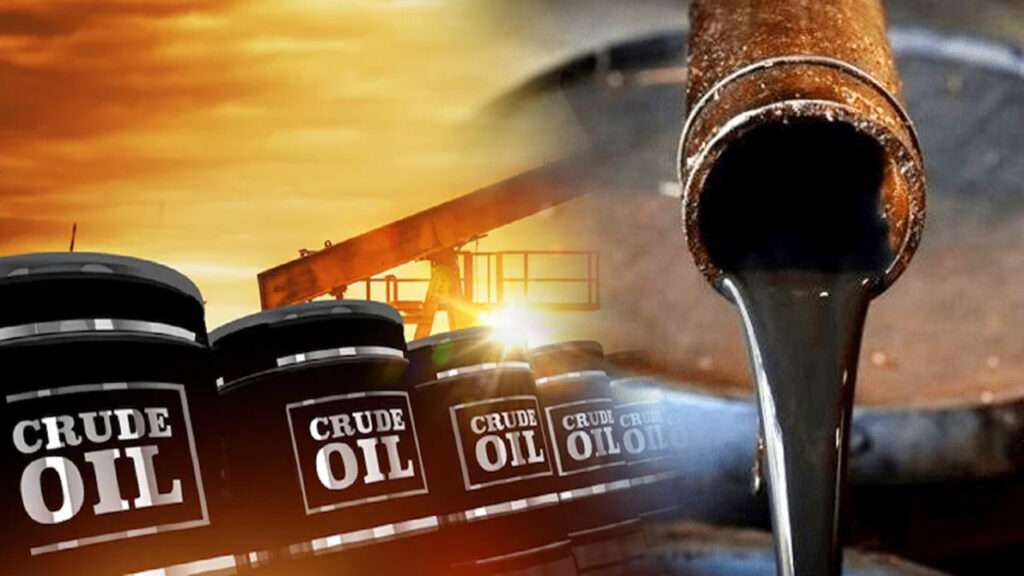Dr. Yussif Sulemana, Technical Advisor to Ghana’s Ministry of Energy and Green Transition, has warned of dire consequences for the global energy supply chain should escalating tensions in the Middle East disrupt shipping through the Strait of Hormuz—a narrow but critical artery for global oil transportation.
Speaking from firsthand experience, having lived and worked in Oman just kilometers from the Strait, Dr. Sulemana underscored the strategic vulnerability of the narrow maritime corridor, and its ripple effects on oil-importing nations like Ghana.
“The Strait of Hormuz controls about a fifth of global oil supply, or approximately 20 million barrels per stream day.
“Just imagine even knocking out a million barrels of oil per day from the global basket. That will have huge ramifications.”
Dr. Yussif Sulemana, Technical Advisor to Ghana’s Ministry of Energy and Green Transition
At its narrowest, the Strait of Hormuz measures just 33 kilometers across, yet it serves as a lifeline for 90 oil tankers each day, moving energy resources from some of the largest producers in the Gulf region. These include Saudi Arabia, UAE, Kuwait, Bahrain, Qatar, and Oman—collectively known as the Gulf Cooperation Council (GCC)—alongside Iraq and Iran.
“In a day, it is estimated that about 90 ships pass through this chokepoint.
“The Strait controls around $50 billion in oil shipments daily. On an annual basis, that’s equivalent to about $600 billion in hydrocarbon products.”
Dr. Yussif Sulemana, Technical Advisor to Ghana’s Ministry of Energy and Green Transition

This staggering volume positions the strait as the world’s most vital oil transit chokepoint, far surpassing global rivals like the Suez Canal or the Malacca Strait.
Unlike the Russia-Ukraine war, which caused oil price spikes that were relatively absorbed by the market over time, the situation in the Gulf is fundamentally different due to the Strait’s critical geography.
“In the case of Russia and Ukraine, the market eventually adjusted. But this is not the same.
“The Strait of Hormuz sits at the center of supply routes for 90% of Gulf oil exports.”
Dr. Yussif Sulemana, Technical Advisor to Ghana’s Ministry of Energy and Green Transition
A significant disruption—even without a total blockade—could trigger a price shock. “We saw this during the Iran-Iraq war in the 1980s. There were serious disruptions, and the global market felt the heat. That was catastrophic,” he said.
Ripple Effects on Africa

Though Africa may not import crude oil directly from the Gulf in large quantities, it remains highly exposed to global oil price volatility due to its heavy dependence on imported refined petroleum products.
“So if the Strait is disrupted, the ripple effect is global. Nobody is insulated, not even world-class economies.”
Dr. Yussif Sulemana, Technical Advisor to Ghana’s Ministry of Energy and Green Transition
This is particularly concerning for African nations with developing economies, many of which subsidize fuel and rely on stable oil prices to balance budgets and manage inflation.
Despite being an oil-producing country, Ghana imports nearly all of its refined petroleum products, making it especially vulnerable to global crude oil price shocks.
“Even if Ghana doesn’t import directly from the Gulf, the wholesale suppliers it relies on do. So disruptions in Hormuz ultimately reach us. The knock-on effect could see petrol prices triple if tensions escalate unchecked.”
Dr. Yussif Sulemana, Technical Advisor to Ghana’s Ministry of Energy and Green Transition
A sustained surge in prices would not only increase transportation and production costs but also worsen the country’s macroeconomic balance, putting further strain on inflation, foreign exchange reserves, and fiscal policy execution.
Market Signals and Speculation

Dr. Sulemana also cautioned against reading too much into immediate price surges, noting that some of the recent oil market reaction is speculative.
“The $77–$78 per barrel price spike was not due to a supply cut, but a risk premium.
“The market responded to fears, not fundamentals. Yet, even speculative movements can hold prices high if uncertainty persists.”
Dr. Yussif Sulemana, Technical Advisor to Ghana’s Ministry of Energy and Green Transition
That said, he emphasized that even temporary disruptions or mere threats to the Strait could destabilize energy markets globally, with traders pricing in worst-case scenarios.
Despite the grim outlook, Dr. Sulemana remains hopeful that diplomatic interventions can prevent a full-blown crisis.
“The chances of miscalculation are very high, which is why everyone is sitting on tenterhooks.
“If Iran chooses to block the Strait, they can. But the hope is that cool heads will prevail.”
Dr. Yussif Sulemana, Technical Advisor to Ghana’s Ministry of Energy and Green Transition

The United States and other global powers have maintained a strong naval presence in the region, in part to ensure freedom of navigation through the Strait. Still, the situation remains tense.
The Strait of Hormuz may seem distant, but its importance to global energy security cannot be overstated. As Dr. Sulemana emphasized, “At the end of the day, the single variable is oil prices. And nobody is insulated from global oil prices.”
For Ghana and other import-dependent African economies, this is more than a foreign conflict—it’s a looming threat to economic stability, energy security, and social resilience.
As the world watches developments in the Gulf unfold, policymakers, economists, and energy experts alike are sounding the alarm: the time for preventive diplomacy is now.
READ ALSO: Iran Hits US Military Base In Qatar


















